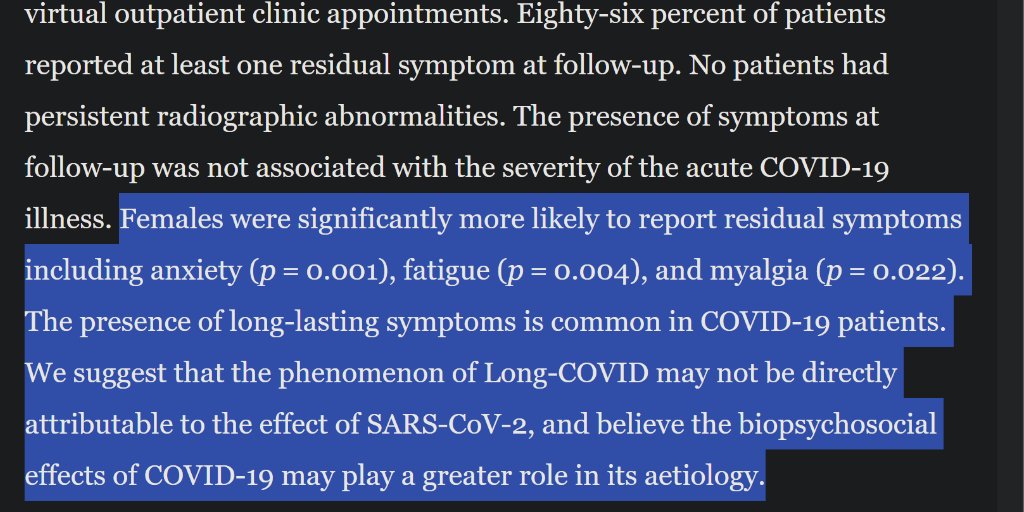
Due to weak to very weak quality of evidence, CBT and GET are no longer recommended for the treatment of people with ME by the National Institute for Health and Care Excellence in the UK. The era of the "biopsychosocial" model is seeing its end. The reasons... 1/
https://twitter.com/TimesONeill/status/1427555327734685700
..are clear and need no further elaboration: For the past decades, proponents of the idea that people can treat or even cure ME through psychotherapy or graded exercise have failed to show that these treatments perform better than placebo. 2/
While many GPs have long abandoned the mantra that "exercise is good for everyone", some are going to cling on to these outdated ideas. The reasons are manifold but they often have one thing in common: conflict of interest. 3/
Such individuals may have built careers developing/practicing the now refuted "biopsychosocial" model, have close ties to its proponents, work as consultants for insurance companies that want to avoid paying benefits etc. 4/
In any case, I am confident that the majority of the medical community will embrace this long overdue change. Patient surveys show that large numbers of people with ME get worse from exercising. The consequence for treatment is clear. First, do no harm. 5/
I also would like to repeat a point I have made earlier. This does not mean that CBT is useless for people suffering from chronic diseases. It can help people cope with their situation. However, at least in the case of ME (and likely #longcovid), they won't cure the disease. 6/
As the biological basis of ME is getting more established, and its overlap with #LongCovid is becoming clearer every day (see e.g. article below among many), critical scientific progress that leads to treatments will hopefully be made within due time. 7/ pnas.org/content/118/34…
Bad news everyone, NICE halted the guidelines last minute. nice.org.uk/news/article/n…
• • •
Missing some Tweet in this thread? You can try to
force a refresh




